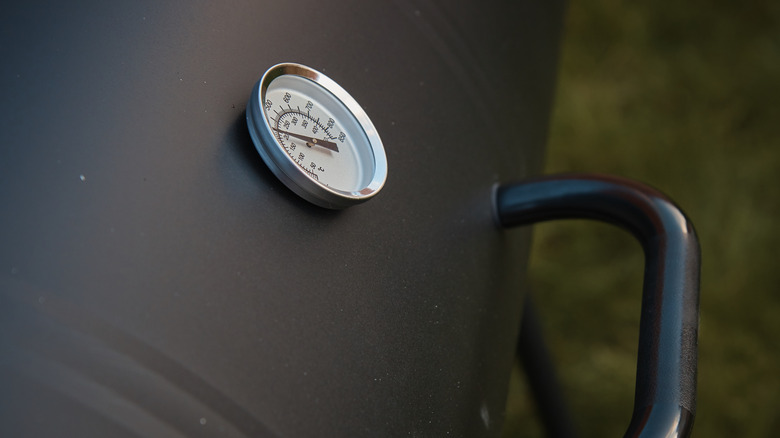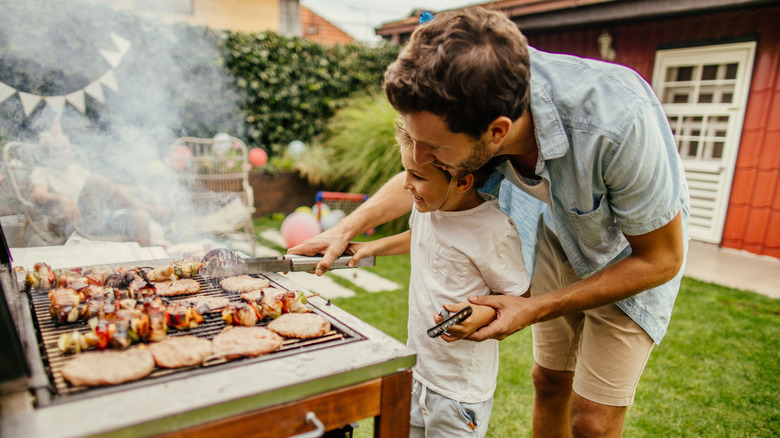Why You Shouldn't Trust The Dial Thermometer On Your Grill's Lid
Grilling can look like one of the more basic forms of cooking. But the best grill chefs know there's just as much art and science to it as any other cooking style, and temperature is a critical factor. Unfortunately, one of the most common methods of measuring it shouldn't be relied upon — the built-in dial thermometer on your grill's lid.
Unlike more familiar mercury thermometers, dial models work through the use of two small pieces of metal that are fused and connected to the display dial. When exposed to heat, they expand at different rates, which turns the dial to the corresponding temperature. At least, in theory. While they're simple, cheap, and don't require electricity, they need frequent recalibration, a process most home grillers will never bother with.
In addition, they're often located in some of the least useful places possible on the grill. Propane grills typically place them in the center of the hood, far above the grill grate, and usually between the zones of a two-zone grill. On charcoal models, they're frequently on the opposite side of the vent, which, when open, will create two dramatically different temperature readings on each side.
The better alternative for grill temperature checks
Fortunately, plenty of good alternatives exist for those looking to take their grilling technique to a higher level. Digital grill thermometers provide a faster and more accurate reading and are relatively cheap and readily available. Some models even include multiple probes that can work simultaneously, allowing you to monitor various zones of the grill and check the internal temperature of food simultaneously.
Usually, relying on a built-in grill thermometer is one of, but not the only, grilling mistake people make regarding temperature and heating. While it's sometimes ignored, adequate preheating is vital, as it kills any remaining bacteria on the grates and also helps prevents sticking. Many also lift and close the lid too frequently, which can cause significant variations in temperature.
So when it's time for your next cookout, ignore that dial thermometer. Your guests and your taste buds will appreciate the extra care!

